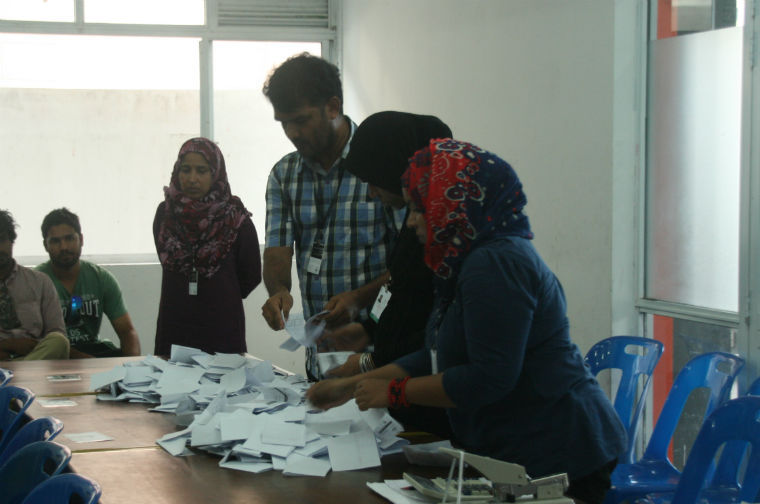Elections commission scraps plan to introduce e-voting

26 Oct 2016, 09:00
The elections commission has scrapped plans to introduce electronic voting in the Maldives for the first time in January’s local council election.
The commission announced Tuesday that it has ruled out e-voting after heeding appeals from political parties. The main opposition Maldivian Democratic Party had considered boycotting the polls after the commission informed parties in May that it has decided to test out e-voting in the council elections.
Both the MDP and the Jumhooree Party had expressed concerns about fraud due to lack of trust in the system.
The commission said at the time that the system would reduce polling costs and speed up vote counting. But the MDP maintained that e-voting is unnecessary “in a country with a small voting population where results are announced within a few hours.”
Become a member
Get full access to our archive and personalise your experience.
Already a member?
Discussion
No comments yet. Be the first to share your thoughts!
No comments yet. Be the first to join the conversation!
Join the Conversation
Sign in to share your thoughts under an alias and take part in the discussion. Independent journalism thrives on open, respectful debate — your voice matters.




